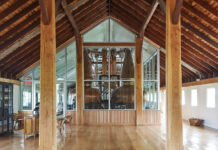You have probably heard the quote, “We make fine bourbon, at a profit if we can, at a loss if we must, but always fine bourbon” typically attributed to Julian P. Van Winkle, Sr., aka “Pappy Van Winkle.”
While the sentiment is nice and there is certainly nothing more important to a distillery’s long-term success than making good “liquid,” the profit and loss side of the business isn’t something to ignore. Before I was a real estate and finance attorney, I was a craft distiller myself, and I learned firsthand that taking the time to fully understand the various financing options available to you is critical to the success of your business.
Here I’ll share three financing options that you can consider as tools in your belt for getting your start-up distillery successfully operating and growing:
Equipment Leasing
Craft distilleries face standard start-up costs like any business, but also need to sink big money (sometimes into the millions of dollars) into shiny distillation, processing and bottling equipment before they can earn their first buck from making and selling spirits. The up-front costs of equipment can be a huge hit to your cash reserves and the fact that you can depreciate the cost may not be of much interest in the early years when you don’t have any taxable profits to offset.
Luckily, equipment leasing allows you to spread the cost of your equipment out over its useful life and can help to better match equipment costs to the revenue it will eventually generate. Equipment leasing is equivalent to borrowing money secured by hard assets, so it should come with better terms than unsecured borrowing (such as credit cards) and should be a “first resort” financing option used to preserve cash rather than a “last resort” option for borrowing emergency funds.
When spec’ing out the equipment you need, first consider whether your equipment suppliers offer in-house leasing or financing options and comparison shop their terms against banks and dedicated equipment leasing companies. Seller-financing options may also be available for other big up-front purchases, such as pallets of bottles or barrels, and it’s always worth asking for generous payment terms because having 90 days to pay vs. 30 can help to smooth cash flow tremendously.
Lease vs. Buy & Landlord Financing
Another major cost that is incurred early in distillery start-up is real estate. The decision to own vs. lease space is incredibly complex and should be evaluated with the help of experienced professionals.
In general, owning a property will most likely require you to put out a substantial amount of cash up-front and make monthly mortgage payments for many years, but those mortgage payments may be constant over time and you’ll benefit from depreciating your property and controlling (but paying for) all maintenance and repairs.
Leasing, on the other hand, requires less up-front cash and may provide you with more flexibility to move or grow, but does not lock in your long-term costs to the same extent as ownership. If you decide to lease, it’s important to thoroughly vet your landlord because distilleries face a unique set of licensing, insurance, legal-compliance and operational requirements that will require your landlord’s cooperation.
A landlord who shares your vision may also be a great source of financing in the form of a tenant improvement allowance, which essentially allows you to spend the landlord’s money on up-front renovations and fit-out of your leased space either to be paid back as additional rent or, if you’re really lucky, as a concession to get you to sign the lease in the first place.
Outsourcing Production
Another complex decision that all craft distillers face is whether to make their spirits “from scratch” in-house, to buy bulk or contract-distilled spirits from a third party, or a combination of the two.
While financial considerations probably won’t make this decision for you, it is important to consider that outsourcing production to a third party is essentially a form of financing – they’re putting in the big up-front costs of buying equipment and raw materials, hiring and training skilled distillers and maybe even storing your spirits while they age to maturity, and you get to purchase finished product on an essentially as-needed basis. This can provide great flexibility to match your costs more closely to your revenues and can greatly speed your path to having a product on shelves.
Furthermore, since many bulk-spirits suppliers and contract distillers have long-proven track records, a business model that relies on that expertise may be a more attractive model to potential investors or lenders since they won’t be rolling the dice on an unproven producer.
These are just a few of the many ways that craft distillers can finance their start-up costs and operations. Don’t be afraid to use the same creativity you bring to your spirits on the finance side of your business and remember that as the industry matures there are now many of us out there who have been through the same rodeo, so don’t hesitate to lean on the craft distilling community for advice.








